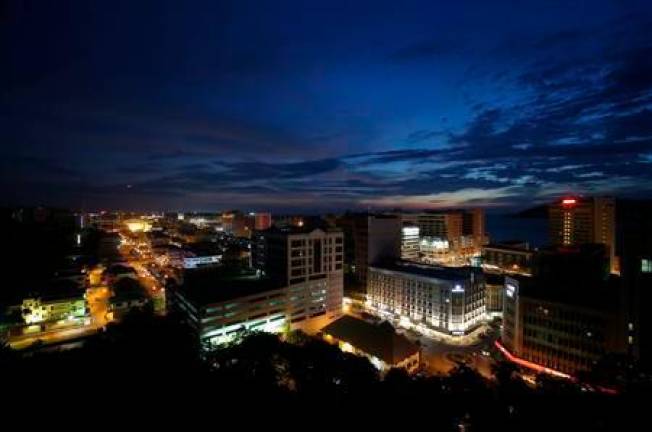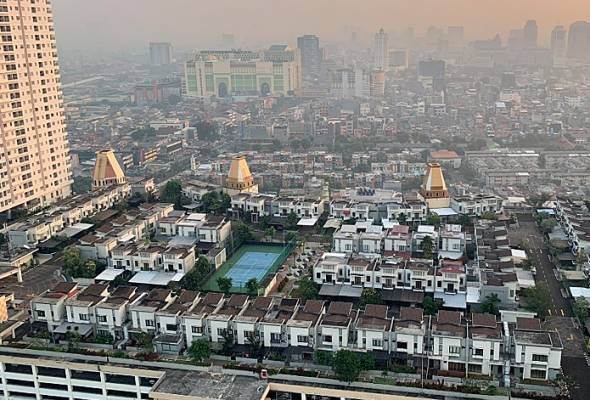
Published by The Sun Daily, Focus Malaysia & Astro Awani, image from The Sun Daily.
Normally people would look forward to year-end – going back to their hometown to celebrate Christmas and New Year with their loved ones – but the ongoing Covid-19 pandemic has led some Sabahans, who are based in Peninsular Malaysia or Sarawak, to think twice due to high travelling costs, health risks and travelling troubles.
Although Sabah re-opened its border to all Malaysians and allowing those from Brunei to travel into the state, many Sabahans have chosen not to fly back home for the Christmas and New Year celebrations.
The flights to Sabah are reasonably priced but the associated cost of doing swab tests hindered families with kids or Sabahan youths, who just kickstarted their career in Peninsular Malaysia or Sarawak, to fly back home.
For instance, for a family flying from Kuala Lumpur to Kota Kinabalu they have to pay roughly RM1,500 for flight tickets for five people – a relatively reasonable sum – but due to adding another RM3,000 in costs for doing the Covid-19 RT-PCR swab tests in both Kuala Lumpur and Kota Kinabalu, travelling costs suddenly become more unaffordable.
Currently, both Sabahans and non-Sabahans have to bear the cost of Covid-19 tests with their own funds if they have travel plans to Sabah.
As the cost of Covid-19 tests ranges from RM150 to RM300 per pax, Sabahan youths who just embarked on their career journey in Peninsular Malaysia or Sarawak would rather save associated travelling costs and not to fly back home.
This is also applicable to jobless Sabahans in Peninsular Malaysia or Sarawak who are still struggling to secure a job during the pandemic.
Their only choice right now is to stay in Peninsular Malaysia or Sarawak as they don’t have extra money to purchase flight tickets as well as having Covid-19 tests carried out.
Futhermore, for Sabahans who are originally from rural areas they might feel that going back home just for the sake of family reunion and celebration is time- and cost-consuming.
Although Sabah’s Covid-19 cases are relatively lesser compared with the beginning of the third wave, Sabah accounts for roughly 40% of all Covid-19 cases in Malaysia, which is 34,478 out of 93,309 cases as of Dec 20.
As Malaysia’s total number of Covid-19 cases already surpassed China – 93,309 cases in Malaysia compared with 86,829 cases in China as of yesterday – this would prevent more Sabahan families with kids, who are based in Peninsular Malaysia or Sarawak, from travelling back home.
Many of the Sabahan parents based in Peninsular Malaysia or Sarawak worry that their kids could be easily infected with the virus when taking their flight home. As kids in general are dependent on parental care, many of the families choose not to return home for celebrations this year to avoid travelling troubles.
Therefore, to avoid a further spike of Covid-19 cases in Sabah, the state government should follow the Sarawak state government’s empathy-driven approach in combatting Covid-19 infections.
Currently, Sarawak is the only Malaysian state imposing strict border controls when the interstate travel restrictions in Peninsular Malaysia were lifted on Dec 7. Non-Sarawakians from Sabah and Labuan who plan to enter Sarawak without any valid reasons are still not allowed.
In addition, any travellers who enter Sarawak must undergo 10 days of quarantine in a designated facility and get tested on the 2nd and 8th day of quarantine.
If the respective traveller tests negative on the 8th day, he or she can leave the quarantine centre on the 10th day.
But they still have to continue with home quarantine and wearing the surveillance wristband until the 14th day.
This applies to Sarawakians returning from overseas, non-Sarawak residents and foreign nationals flying from overseas as well as Malaysians and foreigners flying from Peninsular Malaysia, Sabah and Labuan.
Moreover, the Sarawak state government provides free Covid-19 testing and quarantine facilities for Sarawakians.
So, taking the cue from Sarawak, Sabah should also not allow non-Sabahans from Sarawak to enter Sabah without any valid reason.
Although there is a policy where travellers to Sabah must take a Covid-19 test three days before visiting the state and can only enter if the test result is negative, no quarantine is required in Sabah unlike Sarawak.
For a better response on the Covid-19 infections, the Sabah state government should follow the Sarawak state government’s approach by conducting Covid-19 tests again upon entry and introducing the 14-day quarantine as well as enforcing travellers to wear surveillance wristbands during the quarantine period.
To ensure the safety and welfare of Sabahans, it is time for the Sabah state government to allocate extra Covid-19 funds.
During the recent presentation of the state budget, it was noted that just like Sarawak, Sabah is projected to enjoy a surplus in this year’s budget, which means the state government can afford to be generous by providing free testing and quarantine facilities to Sabahans.
By doing all these, the Sabah state government would be seen as an empathetic government that cares much about the well-being of the Sabahans. This would also help Sabah to be Covid-19 free like its neighbouring state, Sarawak sooner.
Amanda Yeo is Research Analyst at EMIR Research, an independent think tank focused on strategic policy recommendations based on rigorous research.

